FILM: A Filmmaker’s Guide to Getting Your Movie On (the Right) Screen
Acclaimed filmmaker Ali Selim (Sweet Land) offers hard-won advice for emerging filmmakers, including tips on pursuing the right festival for your particular film and the wisdom of looking beyond Cannes and Sundance to find screens for your work.
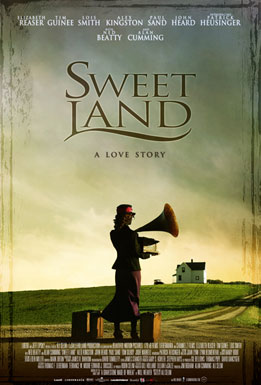
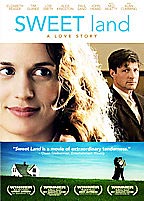

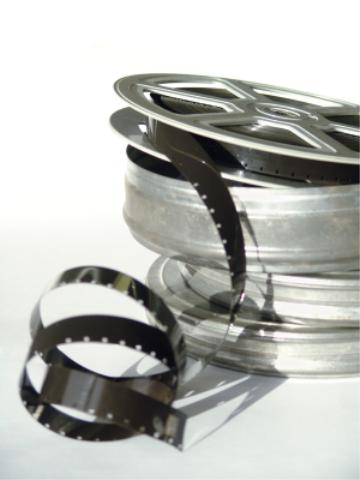
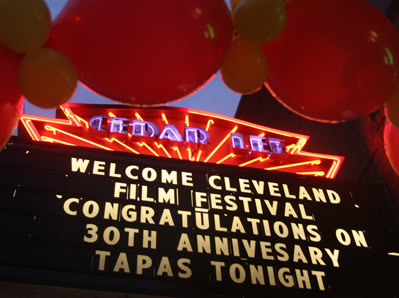
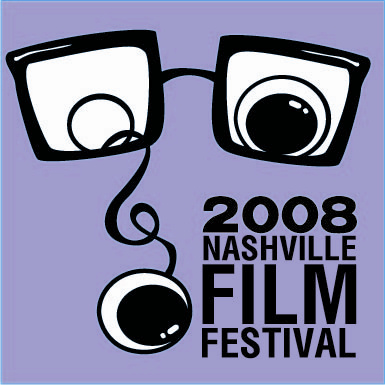
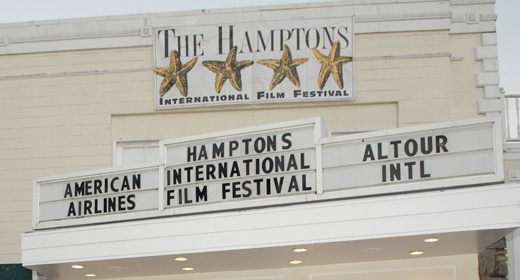
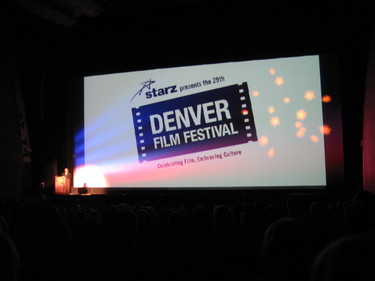

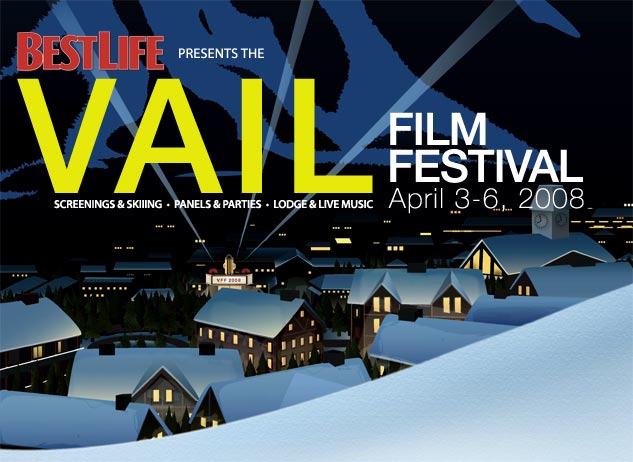

A YEAR AFTER I TOURED THE COUNTRY’S FILM FESTIVALS with Sweet Land, William Guentzler, the director of the Cleveland International Film Festival and a great supporter of my film, invited me back to serve as a documentary juror. Over the course of a week, I watched 20 documentaries, all from the very front row. When I watch, I want that huge film to spill down on me, to completely bring me into the experience, with no distractions in front of me.
After sitting through a film I happened to find boringabout little old Jewish people who picnic in a cemetery every week among the graves of their friendsI turned around in my seat to see a completely sold out theater, filled with teary-eyed, little old Jewish people. They were so moved by the experience that they were barely able to speak or applaud. And only at that moment, even after a year of success at film festivals with glorious reviews and 25 awards for Sweet Land, did I really understand what movies are all about.
As a filmmaker myself, I know what it takes to drag a finished film across the finish line. As a member of this community, I proudly applaud all filmmakers efforts to do likewise. But the fact is, film festivals are egregiously misunderstood: They are not about films and they’re not about your film; they’re not about selling or buying movies, and they’re not about making stars out of new filmmakers. Film festivals aren’t about film at all, really.
Film festivals are about audiences, and they’re sustained by the energy that happens when a film connects with viewers and vice versa. The fact is, audiences are interested in product, not process. True, if they love a finished product, then they love to hear, during the post-show Q&A, how the movie came to be. But the moviegoer’s relationship to a film is two hours long, plus whatever residual effect may linger in their hearts and minds. The audience bond is ultimately to a movie’s effect, not its cause. When filmmakers who are new to the film festival process ask me for advice, I try to make this point especially clear.
During the festival application process, the rejections will inevitably pile up, but they have no bearing on whether or not you have made a good film. Those rejections are merely telling you that this particular festival director at this particular film festival did not think your film would connect with their audience. And satisfying that audience is their primary responsibility. But there are still (literally) a thousand other film festivals (and audiences) that could, potentially, embrace your work.
A FILM FESTIVAL TAXONOMY
There are many different types of film festivals: the famous ones, the regional ones, the ones run by filmmakers, the ones run by film critics, the ones run by the Chamber of Commerce in order to fill hotels and restaurants during the off-season. And each festival has its own theme.
The top-tier festivals the ones we filmmakers all know of and dream about, like Sundance, Toronto, Berlin, and Cannes draw audiences which are comprised, primarily, of distributors and buyers looking for the next big thing to sell to their audiences. It’s exciting to be included in one of these festivals but not necessary to the success of your film; and, sometimes, given your films particular array of marketable elements (story, cast, production value), inclusion in one of these iconic festivals is just not possible. What’s more, getting in to one of them may not even be the best thing for the success of your film. Many promising movies come out of screenings in these name-checked festivals without deals, reviews, or worse, without an enthusiastic audience.
My own film was rejected by most of the top-tier festivals, and yet it found success in the second tier: These are the large, regional festivals that are not attended by distributors, but rather by local, rabidly loyal audiencesthe very same people all the big distributors are trying to reach anyway. And, when these audiences in Cleveland, Phoenix, Nashville, Denver, Vail, Florida, Minneapolis-St. Paul, and Wisconsin (among others) love a film, they tell their fellow movie-loving friends all over the world about it.
I have the emails to prove it.
FINDING THE AUDIENCE FOR YOUR FILM
At a certain point as we were strategizing my film’s promotion, I realized the value of seeking out screenings in these regional festivals. By spending just $500 in travel expenses to take Sweet Land to one of these second-tier festivals, we could directly work to build an audience for the filmthe same audience that Fox Searchlight was building for their own new releases, only they were spending $25 million to do it.
But in this highly competitive media landscape, even with that sort of money, distributors cant connect every film with its ideal audience. We’ve all heard of Juno and Little Miss Sunshine; but what about Ballast and August Evening? These are just two movies which were recently hailed by Sundance and The Los Angeles Film Festival and were loved by audiences therebut, even so, left without distribution deals.
Regional film festivals fill the gap, providing a grassroots-marketing platform for the sorts of films that are simply not going to be candidates for huge distribution efforts from the major studios. And so, when faced with rejection from the first-tier festivals, I gladly scoured the middle parts of the United States for festivals that would love us. A year later when Sweet Land experienced success in commercial release, our audience numbers were driven, not coincidentally, by moviegoers in Cleveland, Phoenix, Nashville, Denver, Vail, Florida, Minneapolis-St. Paul, and Wisconsin (among others).
NAVIGATING THE FESTIVAL PROCESS
Once you’ve chosen some festivals to target with your submissions, successfully navigating the film festival circuit begins with a basic applicationbut a little who you know can really help, too. The application procedure for virtually all film festivals has been made beautifully uncomplicated in the Internet era by Without a Box: an online community of filmmakers and festivals, united by a common goal. The Without a Box website provides a clearinghouse for nearly every film festival in the world. For a fee, you can create a web page about your film on their site, and then, with a couple of clicks, submit that page to festivals for consideration. It is as close as you can get to who you know without actually knowing anyone who can pull strings for you. So many festivals are using Without a Box now, that the festival websites themselves are increasingly geared toward surprise! the audience rather than the filmmaker/participants.
Festivals reportedly receive thousands of envelopes containing DVDs of completed or nearly completed films. I have been in the back offices of some of these festivals and, while I cant verify the specific number, I can tell you there are piles of envelopes. It’s painful to think about, but some of them will remain unopened. Or, they will be opened, pre-screened, and summarily rejected by an intern.
To make sure your envelope is opened and your film is actually screened, you must place it directly in the hands of the decision-makers. But before a film is known, awarded, reviewed, or pedigreed, that can be tricky.
In our case, we got lucky: Gill Holland was an executive producer for Sweet Land, and he seems to have been a founding board member of 90% of the festivals out there. A simple phone call from Gill could fill a screening room with the top festival directors. Not everyone has that kind of connection but, certainly, you know someone, who knows someone, whose sister married a guy, etc. Now is the time to call in some favors to get your envelope out of the pile and into the right hands.
Thanks to Gills efforts and contacts, our first festival screening was at The Hamptons International Film Festival, a high-profile, well-attended event. The festivals director, Rajendra Roy, was tremendously supportive of Sweet Land, giving it prime screening times, alerting his audience as to his appreciation of the film, and making sure the distributors and critics were in attendance. Thanks, in no small part, to Raj’s practical support and overall enthusiasm for the movie, Sweet Land won the Audience Award and received a sublime review in Variety.
After that, it became much easier to find festivals that would not only screen Sweet Land but which would also promote it in their line-up of films. As you work your way through the festival circuit, keep in mind that the world of film festivals is a small community: In addition to his work with the Hamptons International Film Festival, Raj Roy also has a job at The Berlin Festival; one of his employees at The Hamptons also works at the Florida Film Festival; Cleveland’s William Guentzler, was in the audience on opening night at The Hamptons, and so on.
Support is important. The greatest lesson I took away from my experience following Sweet Land to festivals around the country is this: go where the love is. A festival director who loves your film will tell the press about it, give it prominent placement in their catalogue, and then schedule a good screening time.
Some filmmakers argue that Sundance is a more important festival than The Hamptons, but I would dispute that point. For a specific film, the passionate support of someone like Raj Roy can have far greater impact on the life and success of that film than a less passionate response from a “big” festival director like Sundance’s Geoff Gilmore. True, Geoff Gilmore can fill a theater with powerful distributors; but Cleveland’s William Guentzler can fill theater seats with passionate audiences, and they are the ultimate decision makers.
So, here’s my advice: choose your festivals wisely, and select the best ones for your film. Go where the love is.
And go.
Dont just send a DVD or a print to the festival and hope for the best. If you cant afford to foot the bill yourself, tell the festival they cant have your film unless they fly you in and put you up somewhere. Follow your film everywhere. You can read the reviews in the local papers. You can personally collect the awards. Most importantly, if you’re there you can connect with the audience and, in turn, understand their connection with your film. The director’s presence enhances the experience for moviegoers and, in the long run, hearing from them makes you a better filmmaker. You come to understand, like that tree falling in the woods, that movies dont really exist without their audience.
About the author: Ali Selim, named Minneapolis Star Tribune‘s “2006 Minnesota Artist of the Year”, started as an advertising commercial director in 1989 and, since then, has directed over 850 television commercials. For his commercial work, Selim received the Gold Lionadvertisings most coveted awardfrom Cannes Advertising Film Festival and a Gold Award from D&AD (British Design and Art Directors’ organization). His work resides in the permanent collection of the Museum of Modern Art in New York, and Ad Week magazine lists him in the top 1% of most sought after directors in the country.
Sweet Land was Selim’s first foray into feature films, and he served as the movie’s writer and director. His script for Sweet Land (adapted from a short story by Will Weaver) was the only screenplay selected by the Cygnus Emerging Filmmakers Institute in its inaugural year; and the film, produced in 2005, stars Alan Cumming, Ned Beatty, John Heard, Alex Kingston, Lois Smith and Paul Sand, and features Elizabeth Reaser and Tim Guinee. Sweet Land received the 2005 Audience Award for “Best Narrative Feature Film” at the 13th Annual Hamptons International Film Festival, and it won six additional Audience Awards and three “Best First Film” Awards at other leading film festivals in the United States. Sweet Land was awarded the 2007 Film Independent Spirit Award for “Best First Feature,” and was named one of the “Ten Best Films of 2006” by over a dozen critics, including the Los Angeles Times and Entertainment Weekly.
Selim is now in production on a feature-length documentary titled Trash Dawgs, which focuses on the history and ongoing problem of garbage in America. He is concurrently writing a screenplay based on the life of Gene Roberts, a New York City undercover policeman who infiltrated Malcolm Xs organization, which is scheduled for production in 2008.